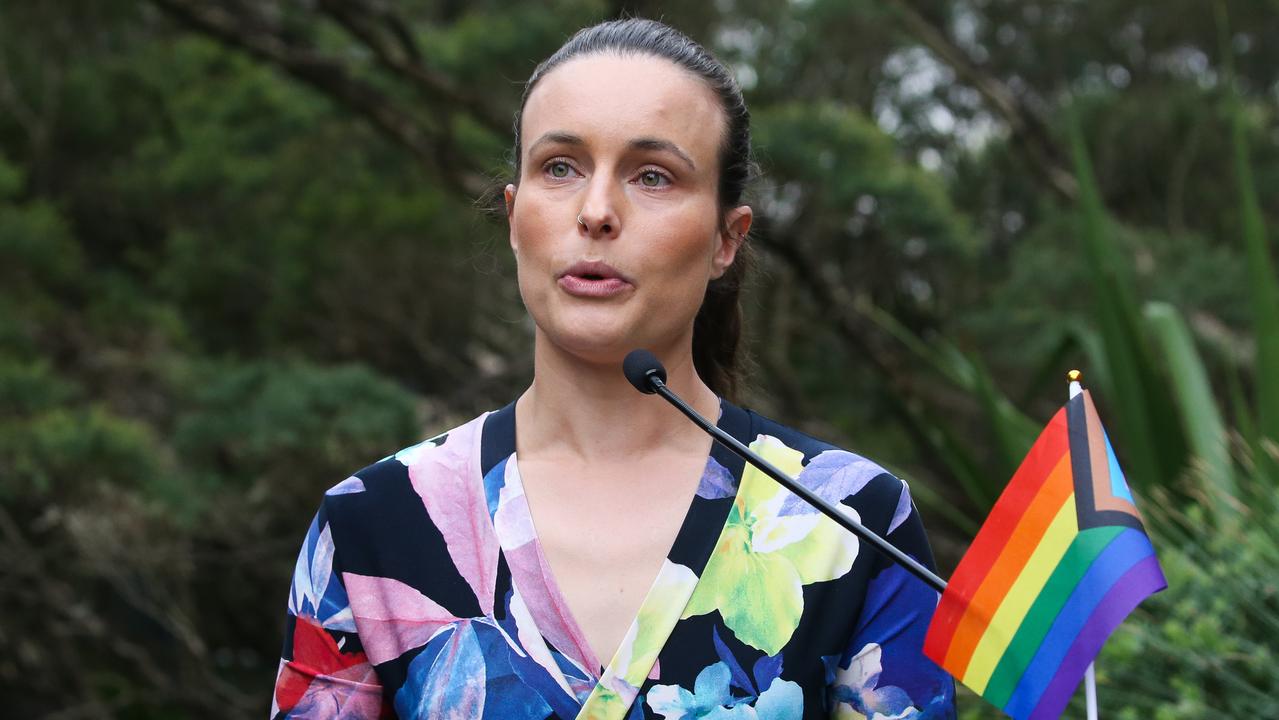‘Katie did not need the vaccine’: AstraZeneca victim was ‘doing her bit’ to end lockdown
Katie Lees was a fit and healthy young actor who “didn’t need the vaccine”, but took it to “do her bit”. Thirteen days later she was dead.
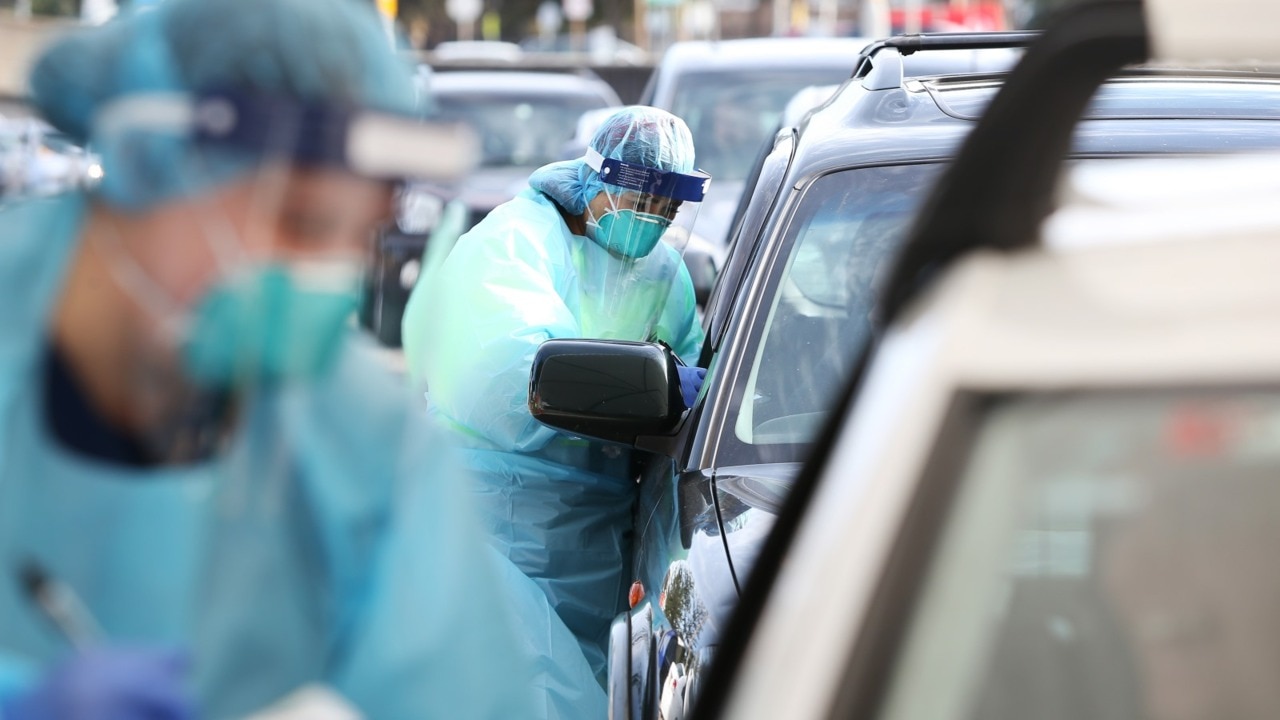
Health
Don't miss out on the headlines from Health. Followed categories will be added to My News.
EXCLUSIVE
Katie Lees was a fit and healthy young actor who “didn’t need the vaccine”, but took it to “do her bit” to end a brutal lockdown which she feared was wreaking havoc on people’s mental health.
Thirteen days after her first dose of AstraZeneca, the 34-year-old’s family gathered around her ICU bed at Royal Prince Alfred Hospital in Sydney.
Her father, Ian, gave the signal to the nurse to turn off her life support.
Ms Lees was declared dead at 4.59pm on Wednesday, August 4, 2021.
“The last time I ever spoke to her on the morning of July 22 she said, ‘I’m getting my AstraZeneca this afternoon.’ She said to me how proud she was for doing it,” Mr Lees, 66, told news.com.au.
“It turned out that was the last time I would ever speak to her. She was actually following the government’s advice, trying to do the right thing for the sake of the community.”

Mr Lees said while his daughter’s death was “soul destroying”, the “toughest bit after that” was the scepticism due to the intense polarisation around vaccines at the time.
“People didn’t die from vaccines,” he said.
“We’d say to people our daughter died from the AstraZeneca vaccine and they’d say, ‘Oh really? How do you know?’”
Ms Lees’ parents described how “every morning, our first thought is how Katie died and the sinking feeling that we were used and discarded by our government, by AstraZeneca and by our society” in a public submission to the federal government’s Covid-19 Response Inquiry.
“This stays with us all day and is that last thought at the end of the day,” they wrote.
“We are trying to get on with life and trying to shape a different life without Katie and with the indifference of our society to her death.”
Ms Lees’ cause of death was vaccine-induced thrombosis with thrombocytopenia syndrome (TTS), one of the deadly blood clotting disorders associated with AstraZeneca in small numbers of people who get the jab.

AstraZeneca, which was discontinued in Australia in March 2023, was withdrawn globally last month after the manufacturer said that a “surplus of available updated vaccines” had led to a decline in demand.
The pharamceutical giant has admitted in a UK court that its jab could, in rare instances, cause fatal blood clots and low platelet counts.
Of the 14 Australians acknowledged by the Therapeutic Goods Administration (TGA) to have died from Covid vaccines, out of the 71.1 million jabs administered across the country, 13 were from AstraZeneca and one from Moderna.
Immediately after her vaccine, Ms Lees had headaches and developed a rash on her arm, but doctors from NSW Health did not pick up that it may be an adverse reaction.
Ms Lees woke up on Sunday, August 1 with a severe headache and vomiting. She was rushed to RPA where a CT scan showed severe clotting in the cerebral vein.
“Katie slipped into deep unconsciousness around 3pm and never regained consciousness,” her parents wrote.
“Despite this catastrophic brain injury, undergoing subsequent neurosurgery and being on life support, due to Covid-19 restrictions, we were not permitted to visit Katie until two days after she was admitted.”
In their heartbreaking submission to the inquiry, Ms Lees’ parents detailed the devastating impact her death has had on their family, and slammed what they felt was the callous response from government and health authorities.
A spokesman for NSW Health on Sunday said the department “respectfully declines” to comment on Ms Lees’ case.
AstraZeneca has been contacted for comment.
Ms Lees’ parents and adult siblings have been “emotionally, mentally and physically traumatised by the way Katie died, the lack of support from government and the pharmaceutical industry and the alienation we feel from the mainstream narrative in our society”, the submission read.
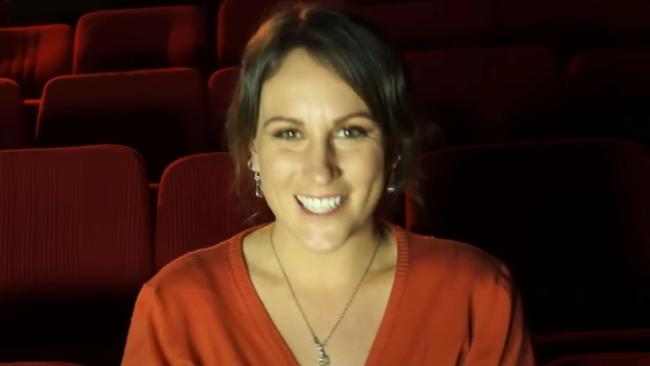
All have suffered financially as a result of the impact on their work and career, including one family member who was a senior executive at a major Sydney hospital “but was unable to continue to work in that role due to the mental health impacts of the constant reminders of Covid-19 vaccination”.
“Katie’s immediate family, extended family and wide network of friends are still traumatised by Katie’s unnecessary death from the AstraZeneca Covid-19 vaccine,” her parents said.
They called in their written submission for the federal government to issue a “National Apology and Recognition for deaths and disabilities suffered as a result of the mandated use of Covid-19 vaccines that were not fully developed and tested”.
“Acknowledgment is the most important and most powerful agent of care and healing,” they wrote.
“If we had received early contact and acknowledgment from a senior politician or health leader, this would have had a significant impact on our health and our future.”
Their submission called on the government to “ensure vaccines are fully and thoroughly tested before being mandated to be taken by large numbers of the population”, and to better target them to those who are at risk of death or disability from the virus, rather than young people who “incurred an unnecessary risk from the vaccine”.
Ms Lees’ parents also want more honesty and clarity in public communications about the “quality, reliability and safety” of the vaccines, as well as a full review of the Covid-19 Vaccine Claims Scheme “including substantial increases in the amounts paid to the loved ones of someone who dies from a government-mandated vaccination program”.
Mr Lees said the family received $70,000 compensation for Katie’s death.
He stressed it was not about the money itself but “what the money represents”.
“Those were tough times and tough decisions were made,” he said.
“We all suffered from this, whether you had a relative die from Covid or like us had a daughter die from a vaccine. How about as a society we acknowledge and adequately compensate those citizens who suffered from what may have been a tough call?”
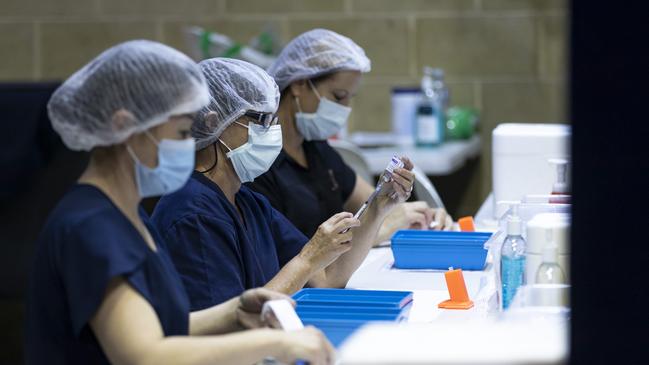
Instead, Ms Lees’ parents said in their submission that the death of their eldest daughter was met with “silence, mockery, discrediting and disbelief” which “continue to this day”.
“Katie’s death was reported in one line on a reporting page on the TGA website on Thursday, August 5, 2021,” they wrote.
“On the same page as listing deaths from the AstraZeneca vaccine, the TGA website continued to say the AstraZeneca vaccine was safe. There was no official mention of her death in the daily Covid-19 updates. No political or health leader initiated any contact with us.”
The TGA has been contacted for comment.
In its weekly vaccine safety report the day after Ms Lees’ death, the medicines regulator extended “its sincerest condolences to her family and loved ones” and said it was “closely monitoring reports” of serious adverse events.
“The protective benefits of vaccination against Covid-19 far outweigh the potential risks of vaccination,” the TGA said.
At the time, Ms Lees was the seventh death found to have been linked to AstraZeneca since the start of the rollout.
The TGA ceased publishing regular Covid vaccine safety reports in November 2023.
Ms Lees’ parents added in their submission that “if that wasn’t bad enough, we have endured ongoing PR campaigns, media reporting and commentary ... denying, diminishing, and discrediting our experience”, including being branded “anti-vaxxers” and having their statements that their daughter died from the vaccine “repeatedly questioned, edited out and watered down”.
The Katie Lees Foundation, which the family set up in 2023 to support female writers and performers, was “initially required by a funding body to delete the statement that Katie died from the AstraZeneca vaccine because they were a ‘pro-vaccination’ organisation”, according to her parents.
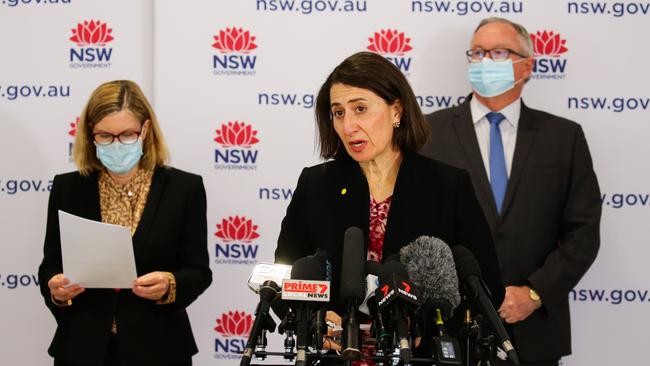
In the weeks after Ms Lees’ death, then-NSW Health Minister Brad Hazzard insisted AstraZeneca was “a perfectly good vaccine”, and Premier Gladys Berejiklian urged people “don’t be fussy” on which one they took.
“The hardest thing after Katie died was you still had [the government] coming out sort of berating society [to get vaccinated], saying it’s perfectly good,” Mr Lees said.
“Most people hear perfectly good and they [interpret that to] mean it’s not going to kill me. I think it was a bit of a whitewash in terms of communication.”
Mr Hazzard and Ms Berejiklian did not make the comments in reference to Ms Lees’ death, but were talking generally based off the advice the government had received at the time.
“Don’t hold off, get your hands on any vaccine you can,” Ms Berejiklian said.
“Keep yourself [and] your loved ones safe. It’s also doing a community service by helping stop the spread and keeping people out of hospital.”
The effectiveness of the vaccines in preventing the spread of Covid has since been called into question — including by Ms Berejiklian’s former deputy and Liberal successor Dominic Perrottet.
“The quicker we are vaccinated, the quicker we will get to the next target,” Ms Berejiklian added.
NSW had been under lockdown since June 2021 due to the Delta outbreak, as the government dangled the prospect of giving back certain “freedoms” only if various vaccination milestones were met.
By late August, some 60 per cent of eligible adults had received their first dose and 30 per cent were double-dosed.
The government had set a target of 70 per cent fully vaccinated by the end of October and 80 per cent by mid-November.
Young people in particular were strongly encouraged to take the vaccine, facing dire warnings that they may be turned away from businesses and venues if they did not get the jab.
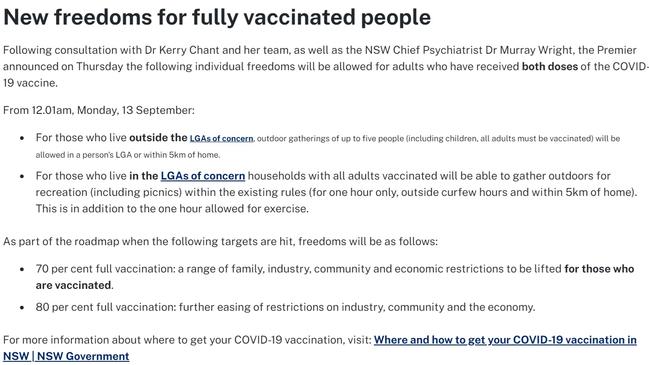
“I am saying to people in a kind, nice, way that there will be a lot of private organisations and companies that won’t accept people at their venues or won’t accept people using their service unless they’re vaccinated,” Ms Berejiklian told 2GB radio.
On August 27, 2021, NSW Health announced it would soon grant “new freedoms for fully vaccinated people”, namely “outdoor gatherings of up to five people, including children” for people outside “LGAs of concern” — local government areas across greater Sydney deemed to have an unacceptably high rate of Covid transmission.
“For those who live in the LGAs of concern households with all adults vaccinated will be able to gather outdoors for recreation (including picnics) within the existing rules (for one hour only, outside curfew hours and within five kilometres of home),” the announcement said.
“This is in addition to the one hour allowed for exercise.”
The announcement added that at 70 per cent full vaccination, “a range of family, industry, community and economic restrictions [are] to be lifted for those who are vaccinated”, with “further easing of restrictions” at 80 per cent.
Ms Lees was set to become the first actor to return to the stage at Marrickville’s Flight Path Theatre after the lockdowns.
“She was to showcase her original play, Temporary, which she wrote, produced, and performed,” the Katie Lees Foundation website states.
“The play, much like Katie herself, was filled with courage, humour, empathy, and a reflection of humanity.”
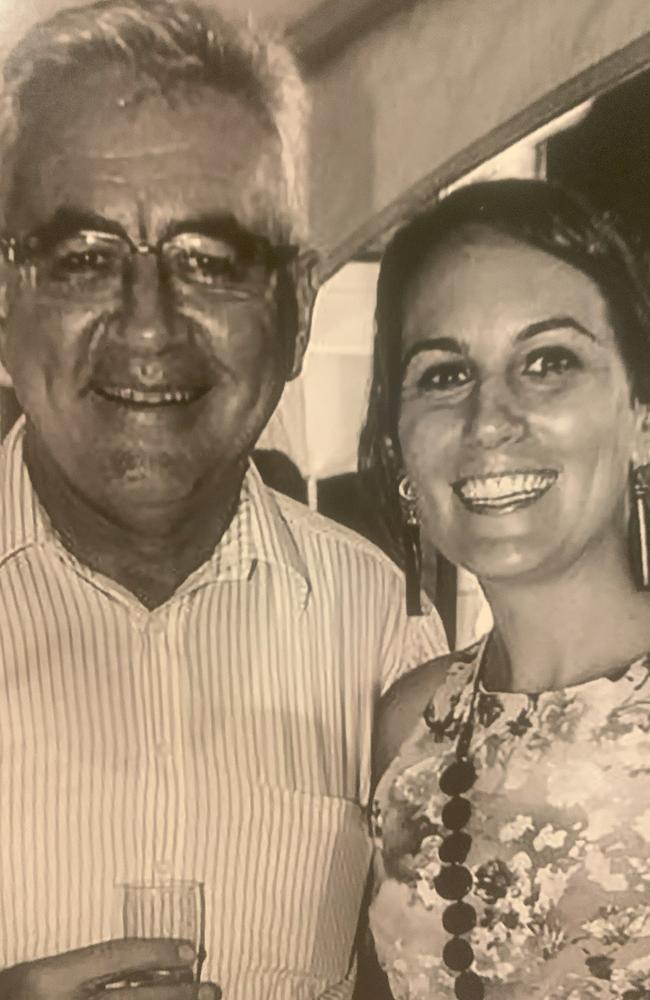
In their submission to parliament, Ms Lees’ parents said she was “a fit and healthy woman who decided to get the AstraZeneca Covid-19 vaccine to do her bit to end the lockdowns imposed on NSW”.
“She had no pre-existing medical conditions,” they said.
“Katie did not need the vaccine — she wouldn’t have died if she got Covid-19. Katie took this action, not because she was worried about getting Covid-19, but because she was deeply concerned about the impact of lockdowns on the life of communities and the mental health of individuals. Katie said, ‘Human beings cannot be expected to live like this.’”
The Katie Lees Foundation was intended to “convert our anger” into something positive, and Mr Lees said it was already having an impact for young women wanting to follow in his daughter’s footsteps.
But he said the pain of her death was not going away.
“I have a hole in me,” he said. “I thought it would get less as time goes on, but it just gets bigger.”
The Covid-19 Response Inquiry is due to hand down its report by the end of September.
More Coverage
Originally published as ‘Katie did not need the vaccine’: AstraZeneca victim was ‘doing her bit’ to end lockdown




